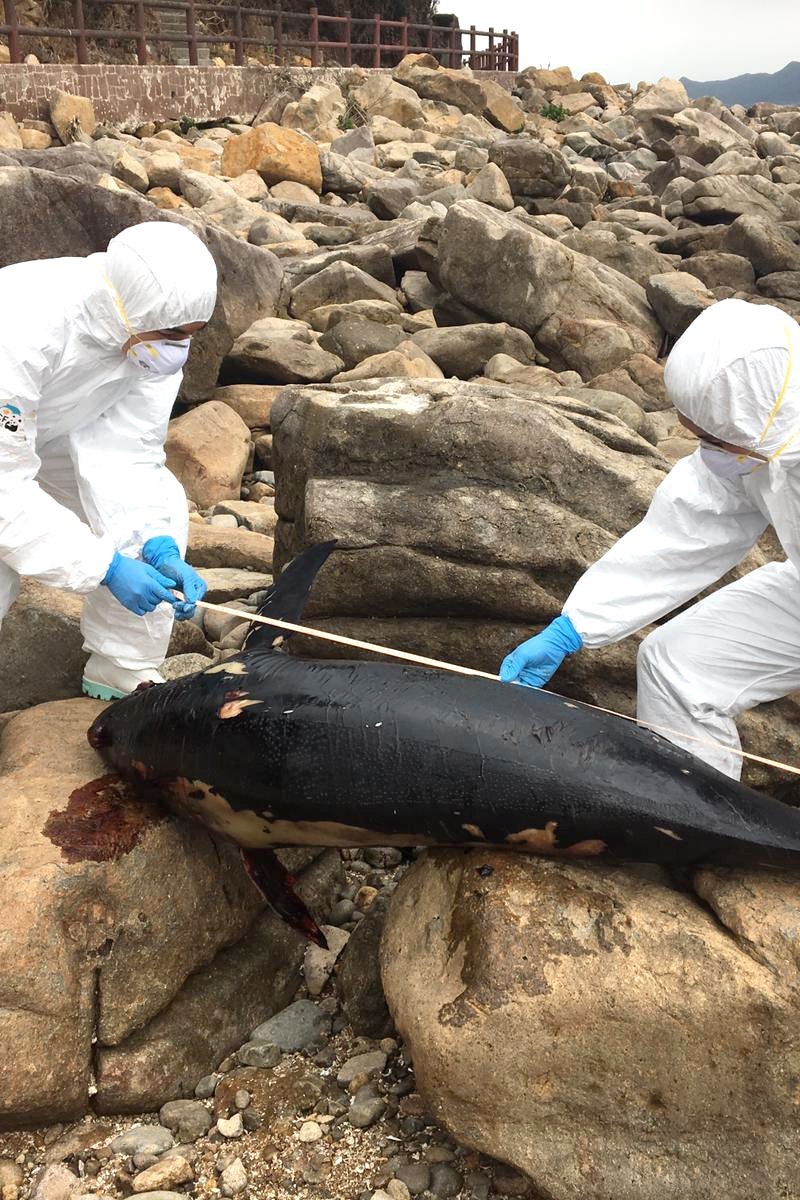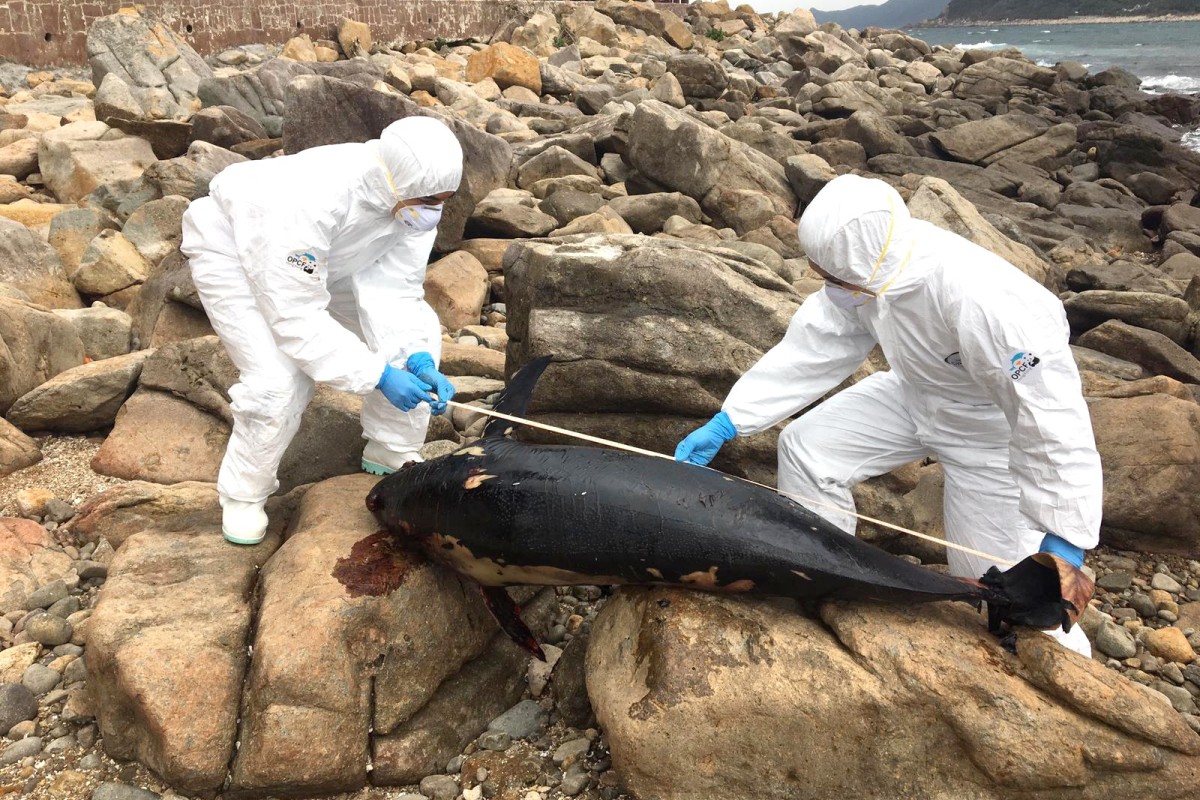
Two porpoise carcasses found on HK shores bring number of cases this year to 15 - a worrying trend, green group says
They were found in Tap Mun and Sai Kung, and conservationists warned that this figure is alarming
 The rotting bodies of an adult and a calf were found in Tap Mun and Sai Kung.
The rotting bodies of an adult and a calf were found in Tap Mun and Sai Kung. Two porpoise carcasses were found on Hong Kong shores on Sunday. This brings the total number of stranded cases involving the marine animal to 15 this year – a figure that was alarming, conservationists warned.
The rotting bodies of an adult and a young creature, or calf, both male, measuring 1.66 metres and 1.36 metres respectively, were found in Tap Mun and Sai Kung. The calf found in Sai Kung had a 34cm wound in its stomach. Both belong to the finless porpoise species.
The incidents were reported to the Ocean Park Conservation Foundation, which helps the government respond to and investigate all stranded cetacean cases.
Remains of two finless porpoise found in HK - that's eighth in total since the start of 2019
The 13 cases in January marked the highest tally for a single month since the group began handling such cases in 2006.
In a written reply to Young Post inquiries, a foundation spokeswoman said all cases of death this year were related to being tangled in fishing nets, boat trauma, or infection. They are also doing more tests to determine the cause for the frequent strandings.
“The high number of stranding cases in January may also be due to the change in water currents and better public awareness. In addition, the distribution of finless porpoises varies according to seasonal change, so climate change thus warmer waters may also be another factor,” she added.
Gary Stokes, founder and CEO of conservation group OceansAsia, said the lack of updated population data meant no one could be sure of the implications of the numbers.
“Fundamentally, we need to first understand the population [of the animal] in Hong Kong, because right now we have no idea,” he said. “We can’t quantify whether 13 in a month is a catastrophe or acceptable.”
However, Stokes said he believed the record-high cases last month were “not just a statistical anomaly”, adding there was something abnormal going on.
Last year, 33 cases in total were reported, the highest in a year since 2014.
The finless porpoise, a sea mammal, is found in coastal waters in Asia, and is listed as a threatened species internationally.
